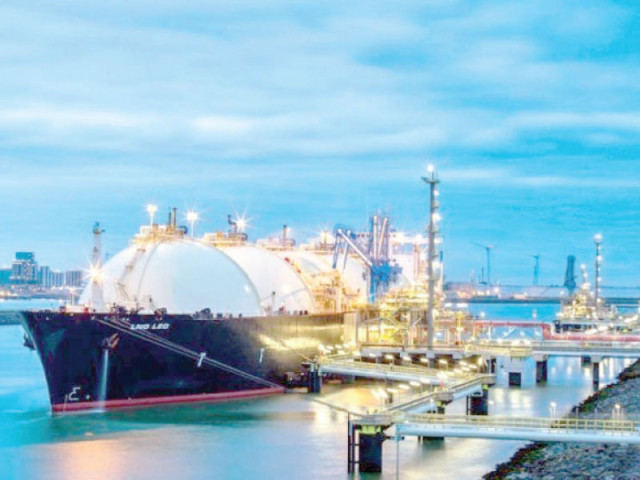Energy supply chain under threat
PSO seeks payment of outstanding dues of Rs550 billion for LNG supply

Pakistan State Oil (PSO) has warned that the country’s entire energy supply chain may get disrupted as circular debt is uncontrollably rising in sales of liquefied natural gas (LNG).
In a letter written to the managing director of Sui Northern Gas Pipelines Limited (SNGPL), oil marketing giant PSO said that outstanding dues against the sale of LNG to the public gas utility had gone up to alarming levels, which could threaten the smooth functioning of the entire energy chain.
“This is in continuation to the numerous letters and correspondences relating to outstanding payment against supply of LNG; it is of great concern that payments against LNG supplies from SNGPL have been alarmingly low since the start of fiscal year 2024 and resulted in a net increase of Rs49 billion in PSO’s receivables,” the PSO management said.
At present, PSO’s total receivables from SNGPL stand at Rs550 billion. “We would like to reiterate that PSO’s cash flow situation is deteriorating rapidly due to continued default in payments by SNGPL and PSO is incurring huge financial charges on financing the growing receivables,” the oil marketing company said.
“Owing to this situation, PSO is facing a serious liquidity crunch which may lead to the disruption of the country’s energy supply chain.”
The management of PSO requested the gas utility to immediately clear the entire outstanding dues of Rs550 billion for LNG supplies, by employing all the available options, in order to ensure uninterrupted energy supply in the country.
Read PSO keen on OGDCL, Mari Petroleum shares
PSO is a key importer of LNG from Qatar and supplies it to SNGPL to meet the requirement of varying consumers.
During the previous winter, SNGPL diverted LNG to domestic consumers following directives from the federal government to overcome energy crisis, mainly in Punjab, which had very low local gas production.
The cost of diverting LNG to domestic consumers has been estimated at $1 billion to address the shortages anticipated in fiscal year 2024-25.
State-owned gas entities are already reeling from the circular debt that has piled up to Rs710 billion, primarily due to LNG supply.
Pakistan LNG Limited (PLL) shoulders a circular debt of Rs142 billion, while PSO grapples with a debt burden of Rs568 billion, all stemming from the supply of re-gasified LNG to state-owned gas utilities.
It was revealed by the key stakeholders recently. The All Pakistan Textile Mills Association (Aptma) North Zone, at a public hearing conducted in Lahore, asserted that the diversion of RLNG to domestic consumers was feared to cost a staggering $1 billion in financial year 2024-25, accounting for 209 million cubic feet of gas per day (mmcfd).
SNGPL has projected diversion of 80,155 British thermal units of RLNG to its consumers in 2024-25 at a cost of Rs297,913 million, equivalent to $1 billion, which has been approved by the Economic Coordination Committee (ECC) and ratified by the federal cabinet.
The circular debt in RLNG chain has been on the rise because of prolonged delay in application of the weighted average cost of gas.
The Pakistan Tehreek-e-Insaf (PTI) government had got approved the weighted average cost of gas bill from parliament but it was challenged in Sindh High Court.
The Oil and Gas Regulatory Authority (Ogra) has applied the weighted average cost partially, but it has not been fully implemented. Therefore, the amount of $1 billion would either be recovered from consumers or it would be added to the circular debt.
Meanwhile, SNGPL is seeking a massive increase in gas prices, effective from July 1, 2024, to meet the company’s revenue requirement.
Published in The Express Tribune, March 27th, 2024.
Like Business on Facebook, follow @TribuneBiz on Twitter to stay informed and join in the conversation.



















COMMENTS
Comments are moderated and generally will be posted if they are on-topic and not abusive.
For more information, please see our Comments FAQ